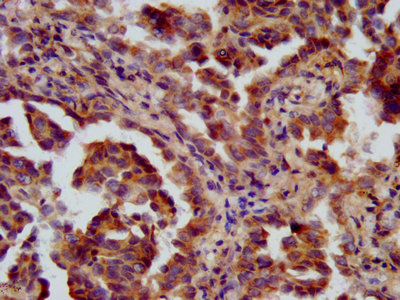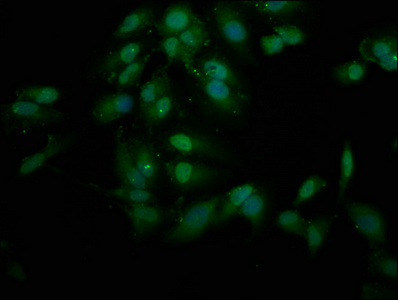Full Product Name
Rabbit anti-Homo sapiens (Human) FANCL Polyclonal antibody
Alternative Names
E3 ubiquitin-protein ligase FANCL antibody; FAAP43 antibody; Fancl antibody; FANCL_HUMAN antibody; Fanconi anemia complementation group L antibody; Fanconi anemia group L protein antibody; Fanconi anemia-associated polypeptide of 43 kDa antibody; FLJ10335 antibody; PHD finger protein 9 antibody; PHF9 antibody; POG antibody; Ubiquitin ligase protein FANCL antibody
Immunogen
Recombinant Human E3 ubiquitin-protein ligase FANCL protein (138-248AA)
Immunogen Species
Homo sapiens (Human)
Conjugate
Non-conjugated
The FANCL Antibody (Product code: CSB-PA882120LA01HU) is Non-conjugated. For FANCL Antibody with conjugates, please check the following table.
Available Conjugates
| Conjugate |
Product Code |
Product Name |
Application |
| HRP |
CSB-PA882120LB01HU |
FANCL Antibody, HRP conjugated |
ELISA |
| FITC |
CSB-PA882120LC01HU |
FANCL Antibody, FITC conjugated |
|
| Biotin |
CSB-PA882120LD01HU |
FANCL Antibody, Biotin conjugated |
ELISA |
Purification Method
>95%, Protein G purified
Concentration
It differs from different batches. Please contact us to confirm it.
Buffer
Preservative: 0.03% Proclin 300
Constituents: 50% Glycerol, 0.01M PBS, pH 7.4
Tested Applications
ELISA, IHC, IF
Recommended Dilution
| Application |
Recommended Dilution |
| IHC |
1:500-1:1000 |
| IF |
1:200-1:500 |
Storage
Upon receipt, store at -20°C or -80°C. Avoid repeated freeze.
Lead Time
Basically, we can dispatch the products out in 1-3 working days after receiving your orders. Delivery time maybe differs from different purchasing way or location, please kindly consult your local distributors for specific delivery time.
Usage
For Research Use Only. Not for use in diagnostic or therapeutic procedures.








